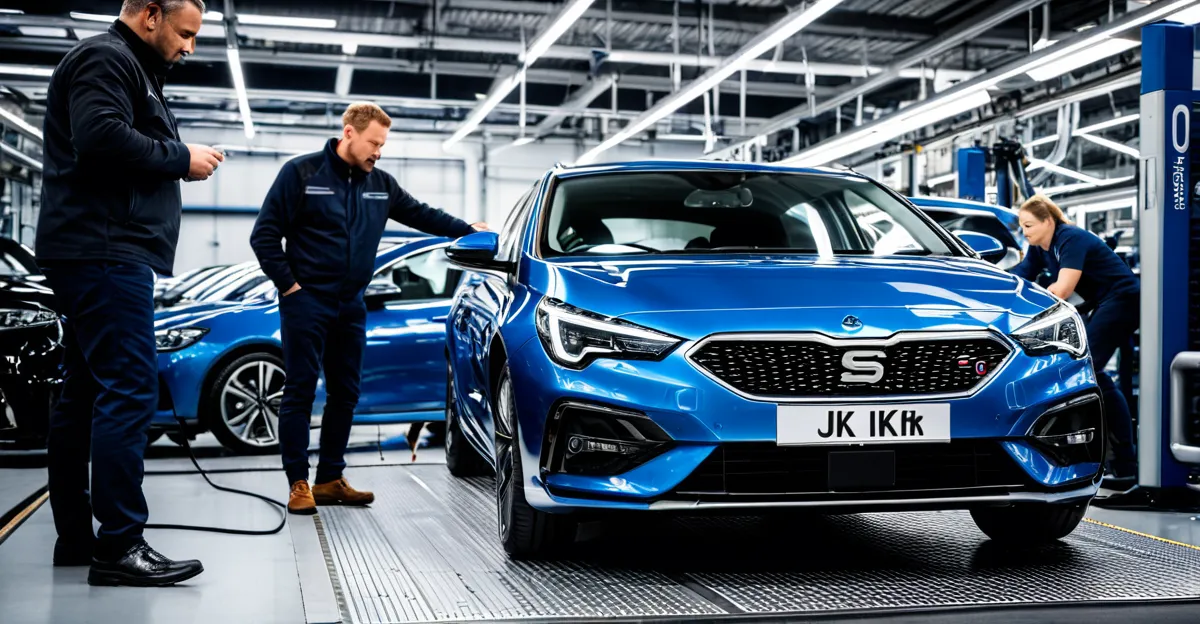Overview of the Skills Gap in the UK Automotive Industry
The skills gap within UK car manufacturing presents significant workforce challenges that impact production and innovation capabilities. Current statistics reveal that up to 40% of manufacturers report difficulties recruiting workers with essential technical skills. This shortage predominantly affects roles in engineering, digital technology, and electric vehicle (EV) development—areas critical to the industry’s evolution.
A key workforce challenge is the rapid transformation of manufacturing processes driven by digitalisation and EV technology, which demands new competencies that many current employees lack. Additionally, aging workforce demographics exacerbate shortages as experienced technicians retire with insufficient replacement influx.
Also to read : How are UK automakers enhancing vehicle safety features?
These workforce challenges include balancing the need to attract new talent while upskilling existing staff. The skills gap results in delays and increased operational costs, hindering UK car manufacturers’ competitiveness in global markets. Furthermore, regional disparities mean some areas face more acute shortages, intensifying the strain on local manufacturers.
Understanding these effects through skills gap statistics clarifies why addressing this issue is urgent. As manufacturers innovate, aligning workforce skills with emerging technologies is vital. This alignment ensures the sector remains competitive and capable of meeting future market demands, reinforcing the need for coherent strategies to mitigate workforce deficits in the UK automotive industry.
Have you seen this : What are the challenges of integrating AI in UK automotive logistics?
Leading Manufacturer Responses to the Skills Gap
UK car manufacturers are actively addressing the skills gap with varied industry responses tailored to evolving workforce needs. Jaguar Land Rover, for example, has launched extensive talent development initiatives focusing on digital and electric vehicle technologies. They emphasize targeted training programs to reskill workers, which proved effective in reducing recruitment challenges.
Nissan’s approach integrates upskilling with local community engagement, offering apprenticeships aligned with real production demands. These initiatives have improved workforce readiness and boosted retention rates. Case studies from both firms showcase how combining in-house training with partnerships enhances skill acquisition.
Cross-industry collaboration further strengthens responses. Car manufacturers often partner with technology companies, sharing expertise to create relevant training content that addresses cutting-edge skills like automation and AI integration. This collaboration helps close the gap between current worker capabilities and future industry demands.
The combination of direct investment in employee development and strategic partnerships exemplifies successful responses to workforce challenges in UK car manufacturing. Continued industry-led efforts are essential to sustain competitiveness, adapt to rapid technological shifts, and mitigate the effects reflected in current skills gap statistics.
Training, Apprenticeships, and Upskilling Initiatives
UK car manufacturers are intensifying efforts to close the skills gap through comprehensive workforce training and expanded apprenticeships. Automotive apprenticeships have grown notably, with many manufacturers partnering with colleges to ensure training aligns closely with industry needs. These programs blend classroom learning with practical experience, making apprentices highly job-ready.
In-house training plays a critical role as well. Car manufacturers invest in upskilling programs that reskill existing employees, particularly targeting emerging technologies like digitalisation and electric vehicle systems. This approach not only addresses immediate workforce challenges but also boosts employee retention by offering clear career development paths.
Work placements and internships further support talent pipelines, offering students and early-career workers valuable hands-on exposure. These initiatives help bridge gaps identified in skills gap statistics, enhancing recruitment effectiveness by preparing candidates for evolving technical demands.
Together, apprenticeships, upskilling, and practical placements form a robust strategy to meet current and future skills needs in UK car manufacturing. By combining theoretical knowledge with practical skills, manufacturers create a workforce capable of adapting swiftly to technological change and maintaining industry competitiveness.




